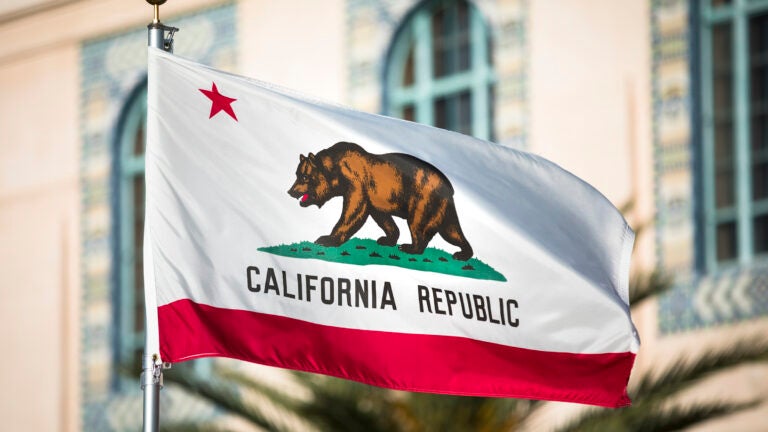
As California goes, so goes the nation: 6 ways California shapes America’s future
As Election Day approaches and all eyes turn to California’s competitive congressional races – likely to sway the balance of power in the U.S. House – USC experts discuss the Golden State’s influence that extends far beyond the ballot box.
Contact: Nina Raffio, raffio@usc.edu or (213) 442-8464; USC Media Relations, uscnews@usc.edu or (213) 740-2215
1. California’s legacy of diversity in elected leadership
 “California’s history of electing women, immigrants and people of color set the trend for increases in diversity in elected officials we’ve seen across the country. The state also has been at the forefront of political reform voting rights, and election reforms, supported by Democrats and Republicans alike,” said Christian Grose, professor of political science and international relations and public policy at USC Price School of Public Policy and the USC Dornsife College of Letters, Arts and Sciences.
“California’s history of electing women, immigrants and people of color set the trend for increases in diversity in elected officials we’ve seen across the country. The state also has been at the forefront of political reform voting rights, and election reforms, supported by Democrats and Republicans alike,” said Christian Grose, professor of political science and international relations and public policy at USC Price School of Public Policy and the USC Dornsife College of Letters, Arts and Sciences.
“If Democrats control the Presidency in 2025, the second Californian in history and first woman will be from the state. The control of the US House will also almost certainly be decided by Californians given the state has the most competitive congressional districts,” said Grose, who also serves as academic director of the USC Schwarzenegger Institute for State and Global Policy at USC Price.
Contact: cgrose@usc.edu
2. A “bright spot” in the effort to tackle misinformation
 “California stands out as a leader in tackling election-related misinformation. We are a bright spot in this effort, having introduced several innovative bills aimed at regulating deepfakes and addressing the spread of misinformation during elections,” said Mindy Romero, director and founder of the Center for Inclusive Democracy and a research assistant professor at the USC Price School of Public Policy.
“California stands out as a leader in tackling election-related misinformation. We are a bright spot in this effort, having introduced several innovative bills aimed at regulating deepfakes and addressing the spread of misinformation during elections,” said Mindy Romero, director and founder of the Center for Inclusive Democracy and a research assistant professor at the USC Price School of Public Policy.
“Since the responsibility to regulate misinformation largely falls to individual states, many will be watching to see what California — home to numerous major tech companies and social media platforms — does in this critical area.”
Read on USC News: Confronting misinformation and building voter trust: Q&A with Mindy Romero
Contact: msromero@usc.edu
3. The backbone of American supply chains and a gateway to global economies

“California’s robust shipping industry isn’t just an asset for the state — it’s a force driving national economic trends, supporting industries and supply chains across the country,” said Nick Vyas, founding director of the Randall R. Kendrick Global Supply Chain Institute and an associate professor of clinical data sciences and operations at the USC Marshall School of Business.
“This economic power amplifies California’s influence on federal policy, where decisions made here affect trade and infrastructure at every level. California isn’t only powering commerce; it’s setting the standards by which America connects with the world.”
Contact: nikhilvy@marshall.usc.edu
4. A dynamic force on the world stage and vibrant hub for innovation
 “California consistently ranks as the world’s fifth-largest economy since 2017, with its GDP expected to exceed $4 trillion in 2024. It’s home to Silicon Valley, where tech giants like Alphabet, Apple, Meta and NVIDIA continue to shape global innovation. Through the ports of Los Angeles and Long Beach, the busiest in the U.S., California serves as a critical gateway to Asia,” said Jonathan Aronson, an expert on international relations, communications, globalization and trade negotiations.
“California consistently ranks as the world’s fifth-largest economy since 2017, with its GDP expected to exceed $4 trillion in 2024. It’s home to Silicon Valley, where tech giants like Alphabet, Apple, Meta and NVIDIA continue to shape global innovation. Through the ports of Los Angeles and Long Beach, the busiest in the U.S., California serves as a critical gateway to Asia,” said Jonathan Aronson, an expert on international relations, communications, globalization and trade negotiations.
“Recognizing Los Angeles’ growing international importance, former Mayor Eric Garcetti appointed the nation’s first Deputy Mayor for International Affairs, Nina Hachigian, in 2017 — a role Mayor Karen Bass continued by naming Erin Bromaghim in 2022. Looking ahead, the 2028 Olympics will only further amplify California’s leadership on the world stage,” said Aronson, a professor of international communication and international relations at USC Dornsife and the USC Annenberg School for Communication and Journalism.
Contact: aronson@usc.edu
5. Inspiring the nation’s shifting values
 “Survey research tells us that Americans across the country are becoming more liberal on many social issues, including those at the intersection of the environment and people. This is a trend that has been emerging for decades with California at the vanguard,” said Joe Árvai, the Dana and David Dornsife Professor of Psychology and director of the Wrigley Institute for Environment and Sustainability at USC Dornsife.
“Survey research tells us that Americans across the country are becoming more liberal on many social issues, including those at the intersection of the environment and people. This is a trend that has been emerging for decades with California at the vanguard,” said Joe Árvai, the Dana and David Dornsife Professor of Psychology and director of the Wrigley Institute for Environment and Sustainability at USC Dornsife.
The idea is that the United States, in about a generation, mirrors where California is today, he said. When it comes to environmental issues, research suggests the timeline is even shorter — it’s more like just a few years.
Contact: arvai@usc.edu
6. A pioneer in EV technology, emissions standards
 “California has been a leader in both technology innovation and regulatory oversight of industries. The modern rebirth of the electric vehicle (EV) industry took place here,” said Hovig Tchalian, an expert on EVs, market emergence and disruptive technology.
“California has been a leader in both technology innovation and regulatory oversight of industries. The modern rebirth of the electric vehicle (EV) industry took place here,” said Hovig Tchalian, an expert on EVs, market emergence and disruptive technology.
In the 1990s, GM launched the R&D effort for its EV concept car, the Impact (in production starting in 1996 as the EV1), in Southern California, said Tchalian, an assistant professor of clinical entrepreneurship at USC Marshall.
“Simultaneously, the California Air Resources Board put in place a zero-emission vehicle mandate that, although eventually watered down, set the standard for modern emission mandates. The recent surge in EV production and consumption have both been centered in California, with at least 25% of overall sales in the last decade taking place in the state.”
Contact: tchalian@marshall.usc.edu
###
(Photo/iStock)



